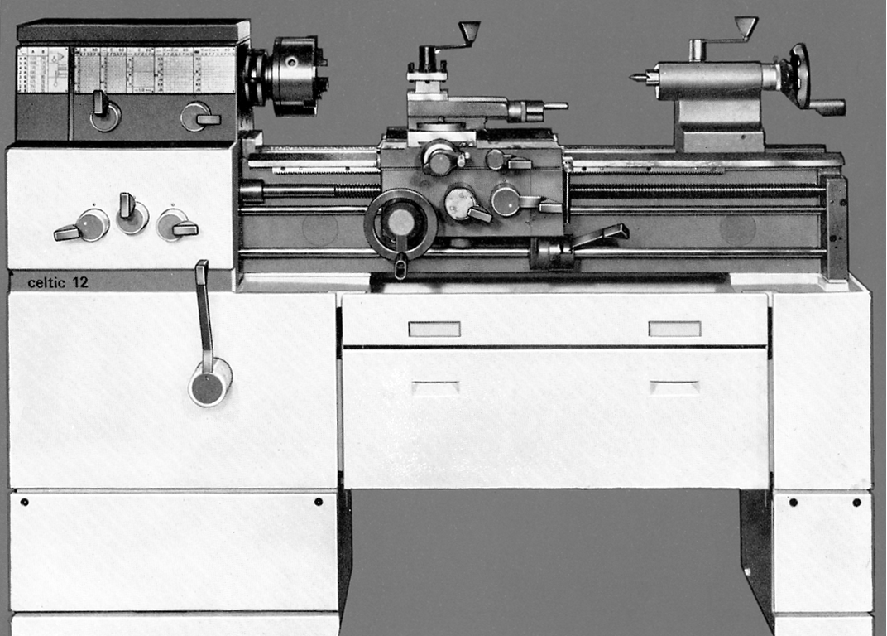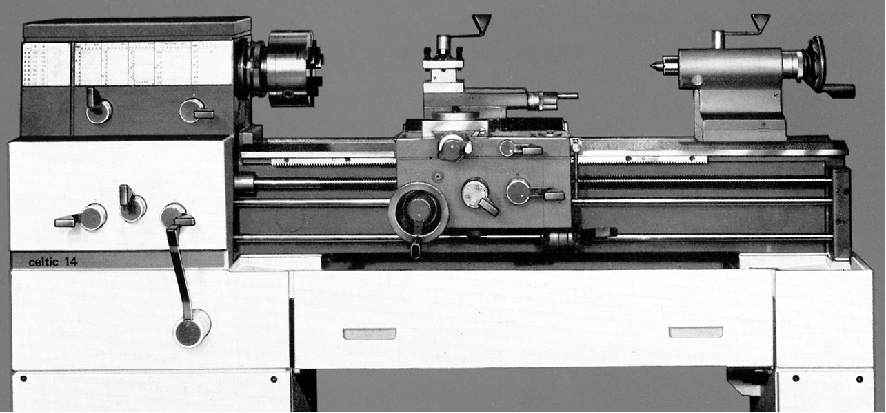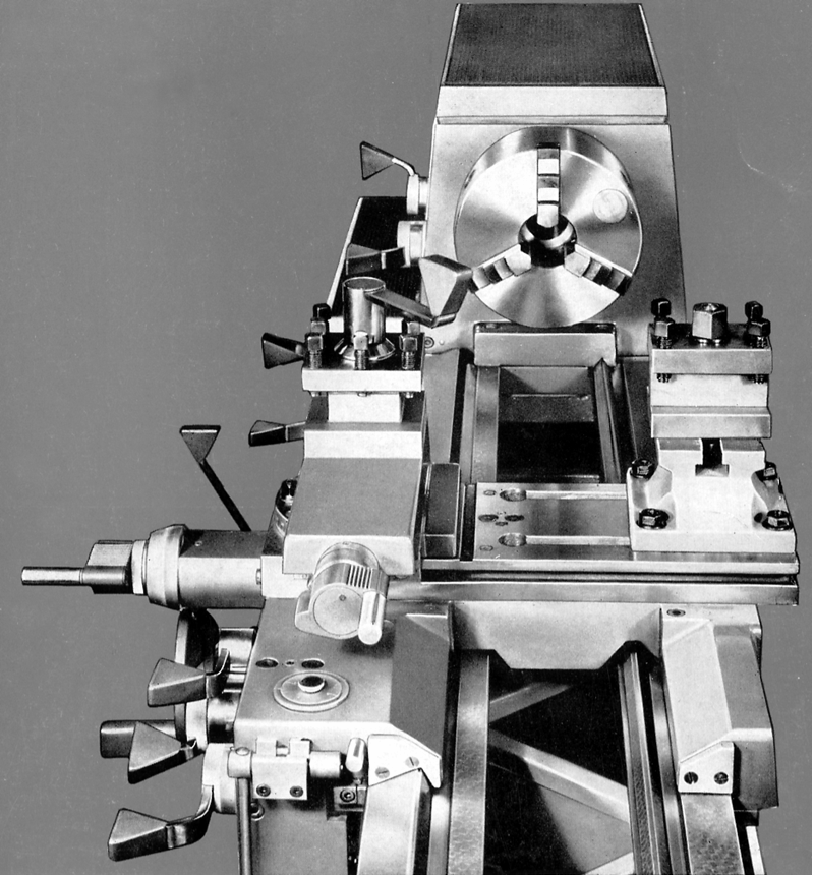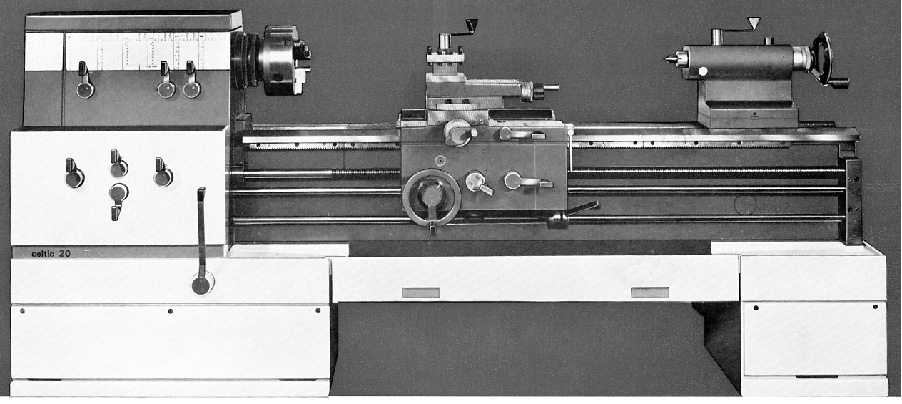A manual for the 17N and 20N can be ordered here
A good deal of clever work went into making the Mk. 2 Celtic lathes look significantly different to (and very much more "modern" than) the original versions; however, underneath the new clothes were the old machines with almost identical mechanical specifications and nearly the same performance.
The Celtic 12 was given an extra range of metric threads - the original 27 settings from 0.25 to 10 mm pitch being improved to 49 from 0.225 to 10 mm pitch - although the rest of the gearbox, together with the sliding and surfacing feeds, remained unchanged. The cross slide travel was increased by one inch, to 7.5", and the option of a low-power motor for training establishments (1.3--0.9 hp) was dropped and only the two more powerful options (2-1.6 hp and 3-1.9 hp) retained.
On the Celtic 14 the same changes were made to the screwcutting arrangements as on the 12. The lower-power 2-speed motor (2-1.6 hp) was dropped and the original high-power unit (3-2 hp) became the standard fitting with a 4-2-8 hp motor introduced for the high-speed version--although the spindle speeds remained, as before, at 24 to 1000 rpm and 38 to 1600 rpm. In line with these changes the optional threaded spindle was (thankfully) dropped and the options introduced of either a long-nose taper in a L0 size, a modern Cam-lock fitting or even a 5 DIN 55022 Bayonet. The small spindle bore was left unchanged.
The Celtic 20 also had changes made to the screwcutting arrangements with the new settings providing 53 inch pitches (63 previously), 45 metric threads (35 before) but the same number (54) and rates of longitudinal and traverse feeds. The first 2-speed 6.5/4 hp motor was replaced by a 6.5/4.5 unit that allowed a choice of two speed ranges: the original 12.5 to 1000 rpm and a slower 10 to 800 rpm..



